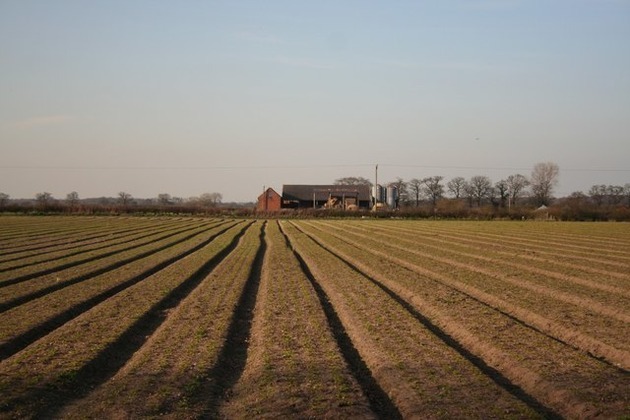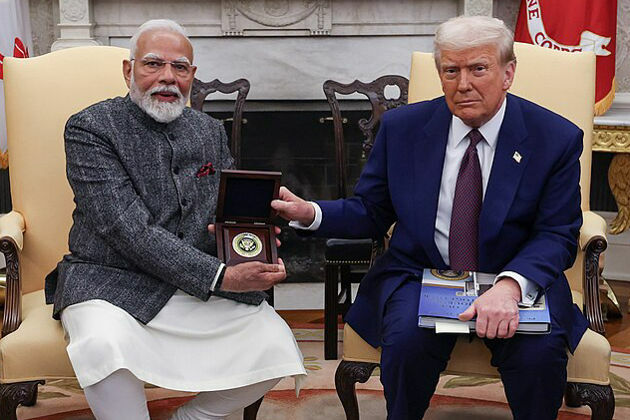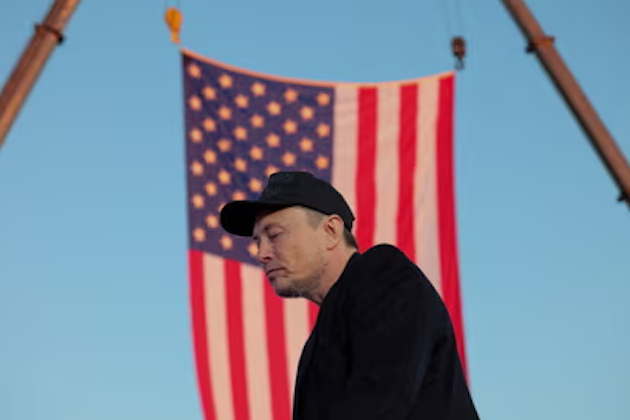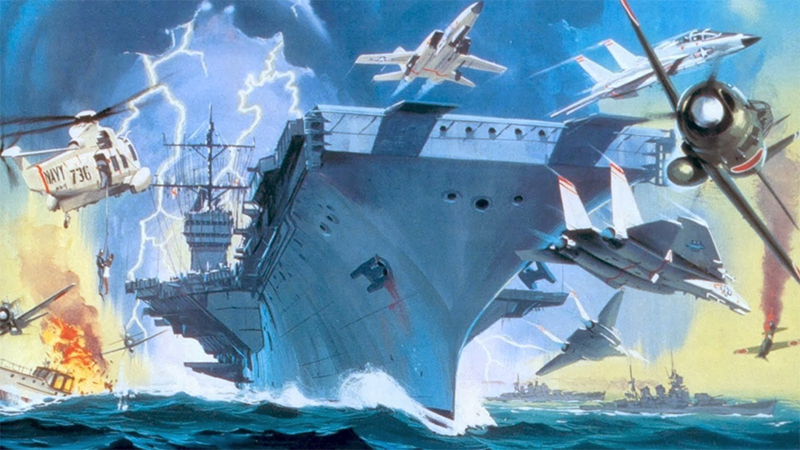Nigerian writers compare genocide of Igbos to the Holocaust
The Conversation
14 May 2019, 11:06 GMT+10
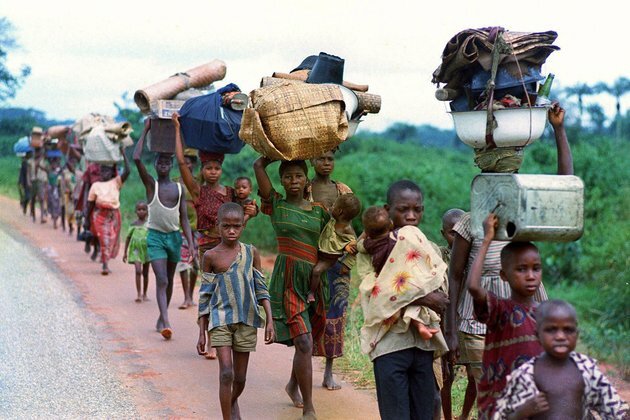
During the massacre of Igbos in Nigeria between 1966 and 1970, one to three million people died. In the decades since, writers have worked to make sense of the immense human tragedy.
These literary representations of the massacres use the Holocaust as an important point of reference.
The war in Nigeria, with its associated mass atrocities, is arguably one of the first major moments in postcolonial Africa when accusations of genocide were made. Following military coups in Nigeria in 1966, the military and ethnic extremists systematically targeted and killed Igbos across the then Northern and Western regions of Nigeria.
Massacres of Igbos and other Easterners across the country led to thousands of deaths and the displacement of millions.
The massacres led the Eastern Region of Nigeria to declare its secession from Nigeria. The region was renamed the republic of Biafra. Nigeria invaded Biafra in July 1967, leading to a protracted war. The federal government used starvation tactics which led to upwards of three million civilian deaths in Biafra. Biafra officially surrendered to Nigeria in January 1970.
After its genocidal war, the Nigerian government proceeded to engineer a culture of denial.
To counter that propaganda, writers reflecting on that past have often framed the war as genocide. A common feature in the writings is the comparison of Igbo experiences of atrocities to Jewish ones during the Holocaust.
The Holocaust as cultural icon of genocide
During the Biafran War, U.S.-based Igbo poet, Onwuchekwa Jemie, compared the murder of Igbos in Nigeria to the Nazi German murder of Jews during the Second World War. His poem, Requiem (from his 1970 poetry collection, Biafra: Requiem for the Dead in War) reflects this:
Once in 53 Three times in 66 Nigerians shoot civilians through the ears rehearsing all known tortures murdering all males and raping old women forcing teenage girls in leper clinics hundreds butchered the 30,000 innocents mowed down Nazi fashion a final solution that failed again.
In Requiem, Jemie catalogues the systematic persecutions and murders of Igbo civilians, which he considers similar to the Nazis final solution.
The lines a final solution / that failed again encapsulate the poets defiant view that Biafra will survive the genocidal onslaught from Nigeria.
Global history scholar Lasse Heerten has explained in his work on Biafra, that such comparisons of Igbo suffering to the Nazi genocide of Jews reveal the growing awareness of the Holocaust in African conflict zones at the time.
The comparison of Igbo suffering to the Holocaust offers a way for the writers to internationalize Igbo experience in Nigeria. In so doing, they are sharing a moral message about the universal condition of human cruelty.
The cruel human condition
Similarly, the 1971 poem Vultures by Chinua Achebe reflects on the troubling realization that humans possess simultaneously a capacity for human care and a vultures inhumane savagery. The poet imagines a Nigerian military commander as a vulture and compares him to the Commandant of the Nazis death camp at Belsen:
Thus the Commandant at Belsen Camp going home for the day with fumes of human roast clinging rebelliously to his hairy nostrils will stop at the wayside sweetshop and pick up a chocolate for his tender offspring waiting at home for Daddys return
Achebes reference to the Holocaust evokes the Nazi death camps as a site of savagery: fumes of / human roast. He seems to be alluding to Paul Celans 1948 poem, Death Fugue, which describes the cremation of Jewish victims in the Nazi camps as a grave in the sky.
Reference to the Holocaust in Achebes poem provides a way to meditate on the ironic condition of human cruelty.
Another writer who used the Holocaust as a metaphor for moralizing about the human condition is Nobel laureate Wole Soyinka, who was jailed for his attempts to mediate between Biafra and Nigeria. His 1972 prison memoir The Man Died expresses his frustration over the unending cycles of brutality and the pattern of genocidal murders taking place in Nigeria. Soyinkas other books, plays and poems on the 1966-1970 crisis equally draw on the Holocaust as a way to comment on cruelty.
And the World Has Remained Silent
Such comparison between Igbo suffering and the Holocaust intending to convey a moral message on human condition can be found in several other writings, including Flora Nwapas Never Again, Chris Abanis Graceland (2004), Nnedi Okorafors fantasy novels, Who Fears Death (2010) and The Book of Phoenix (2015), and notably too in Chimamanda Ngozi Adichies novel, Half of a Yellow Sun (2006).
In Half of a Yellow Sun, there are several instances comparing the experiences of Igbos to those of Jews under the Nazis.
For example, the title of the character Ugwus story, The World Was Silent When We Died, echoes the original Yiddish title of Elie Wiesels Holocaust memoir, Un di Velt Hot Geshvign, (And the World Has Remained Silent).
Universalize can also mean generalize
I believe these literary analogies between Jewish and Igbo experiences have helped to make the atrocities public and known. However, these analogies can also overwhelm the particulars of the Nigerian context of the crisis.
Because the political contexts of such historical mass atrocities being compared vary significantly, these comparisons may come at the cost of our understanding of genocide in African states. Both African and European historical contexts within which these atrocities occurred may become de-territorialized and depoliticized.
In the meantime, local suppression of political questions of Igbo self-determination and justice in the wars aftermath remain unaddressed.
 Share
Share
 Tweet
Tweet
 Share
Share
 Flip
Flip
 Email
Email
Watch latest videos
Subscribe and Follow
Get a daily dose of Tucson Post news through our daily email, its complimentary and keeps you fully up to date with world and business news as well.
News RELEASES
Publish news of your business, community or sports group, personnel appointments, major event and more by submitting a news release to Tucson Post.
More InformationBusiness
SectionEngine defect prompts Nissan to recall over 443,000 vehicles
FRANKLIN, Tennessee: Hundreds of thousands of Nissan and Infiniti vehicles are being recalled across the United States due to a potential...
Microsoft trims jobs to manage soaring AI infrastructure costs
REDMOND, Washington: Microsoft is the latest tech giant to announce significant job cuts, as the financial strain of building next-generation...
Stocks worldwide struggle to make ground Friday with Wall Street closed
LONDON UK - U.S. stock markets were closed on Friday for Independence Day. Global Forex Markets Wrap Up Friday with Greeback Comeback...
Nvidia briefly tops Apple’s record in AI-fueled stock rally
SANTA CLARA, California: Nvidia came within a whisker of making financial history on July 3, briefly surpassing Apple's all-time market...
ICE raids leave crops rotting in California, farmers fear collapse
SACRAMENTO, California: California's multibillion-dollar farms are facing a growing crisis—not from drought or pests, but from a sudden...
Trump signals progress on India Trade, criticizes Japan stance
WASHINGTON, D.C.: President Donald Trump says the United States could soon reach a trade deal with India. He believes this deal would...
Arizona
SectionICE raids leave crops rotting in California, farmers fear collapse
SACRAMENTO, California: California's multibillion-dollar farms are facing a growing crisis—not from drought or pests, but from a sudden...
Trump hints at DOGE investigation of Musk subsidies
WASHINGTON, DC - U.S. President Donald Trump on Tuesday claimed Elon Musk's success has been built on government subsidies. Without...
Diamondbacks reinstate OF Corbin Carroll from IL
(Photo credit: John E. Sokolowski-Imagn Images) The Arizona Diamondbacks reinstated right fielder Corbin Carroll from the 10-day...
WR Kaydon Finley shuns dad's alma mater, picks Notre Dame
(Photo credit: Ronald W. Erdrich/Reporter-News / USA TODAY NETWORK) Four-star wide receiver Kaydon Finley has committed to Notre...
Rockies face White Sox, still hope for first home-series victory
(Photo credit: Brad Mills-Imagn Images) The Colorado Rockies have yet to win a home series this season, but they still have a chance...
Giants ace Logan Webb feels at home vs. A's in West Sacramento
(Photo credit: Matt Kartozian-Imagn Images) San Francisco Giants ace Logan Webb grew up dreaming about pitching at Sutter Health...






